Breast Augmentation in Lithuania
Search and Compare the Best Clinics and Doctors at the Lowest Prices for Breast Augmentation in Lithuania
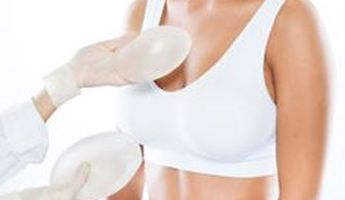
Find the best clinics for Breast Augmentation in Lithuania
With Medijump you can browse 4 facilities offering Breast Augmentation procedures in Lithuania. The cheapest price available is $2,562 in Vilnius. And for the cheapest price globally, prices start from $208 in Hungary.
Breast Augmentation in Vilnius
Price: $ 2,562
Hungary offers the best prices Worldwide
Price: $ 208
From 3 verified reviews
Lukas Vaišys, 11 March 2020
I recommend, very good professionals.
From 10 verified reviews
AGNĖ KULBYTĖ-PETRAUSKIENĖ, 23 December 2019
I have visited many times, doctor dermatologist Justė Kantauskaitė - a great specialist, left a wonderful impression both as a person and as a specialist in her field. Next time I would pick her again. My daughter also really enjoyed it!
From 42 verified reviews
Ieva Žentelytė, 15 September 2020
Thanks to surgeon A. Sklepavičius for taking care of his patients, professionalism and the fact that He heals people, discovers diseases. I was lucky to entrust my problems to this Doctor in capital letters. Happy patients and clinic with a doctor like A. Sklepavičius.
MedLT, located in Laisves, Vilnius, Lithuania offers patients Breast Augmentation procedures among its total of 74 available procedures, across 10 different specialties. The cost of a Breast Augmentation procedure starts from $3,155, whilst the national average price is approximately $2,679. All procedures and treatments are undertaken by the lead specialist at the Hospital, and they are not accredited by any recognized accreditations institutes
- Home
- Lithuania
Compare Before & After Photos of _procedure_photos.phpBreast Augmentation


Full-side view
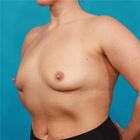

Half-side view


Front view
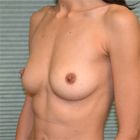

Half-side view
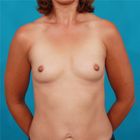

Front view
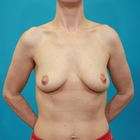

Front view
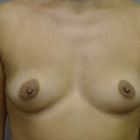
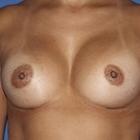
Front view
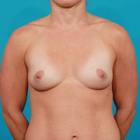
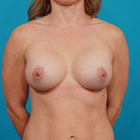
Front view
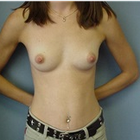
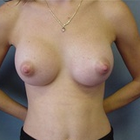
Front view
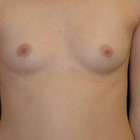
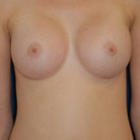
Front view
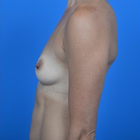
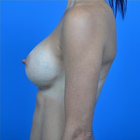
Full-side view
WHY US?
At Medijump, we're making medical easy. You can search, compare, discuss, and book your medical all in one place. We open the door to the best medical providers worldwide, saving you time and energy along the way, and it's all for FREE, no hidden fees, and no price markups guaranteed. So what are you waiting for?

Free

Best Price

Widest Selection

Risk-Free
What you need to know about Breast Augmentation in Lithuania

Breast augmentation, also known as a Boob Job or Breast Enlargement, is a surgical procedure aimed at increasing breast size, enhancing shape, or improving symmetry. In Lithuania, this procedure is carried out by board-certified plastic surgeons in accredited medical facilities, ensuring both safety and quality.
What is the cost of Breast Augmentation in Lithuania?
Prices in Lithuania are competitive, often offering savings without compromising on quality, especially when compared to costs in the US or Europe. However, factors such as surgeon’s fees, facility costs, and the type of implants affect the total cost.
What does a Breast Augmentation Procedure Involve?
The surgery involves placing breast implants under the breast tissue or chest muscles. Choices between saline or silicone implants can be made based on the desired feel and appearance. This is something your surgeon will discuss with you prior to even travelling.
How Long Should I Stay in Lithuania for a Breast Augmentation Procedure?
The length of stay in Lithuania for a Breast Augmentation is subject to various factors, such as your overall health, the specific nature of the procedure, and your individual recovery rate. Generally, Breast Augmentation surgery is an outpatient process, meaning you may be able to return home on the same day. However, a stay of up to two days might be necessary if your procedure is more intricate.
Although the hospital stay is relatively brief, it is advisable to remain in Lithuania for at least one-week post-procedure. This timeframe allows for initial recovery and a follow-up appointment with the surgeon. Moreover, in the event of any complications, prompt medical assistance will be accessible. Thorough knowledge of the recovery process and its duration is crucial for proper preparation and managing stress during treatment.
What's the Recovery Time for Breast Augmentation Procedures in Lithuania?
Post-surgery, a recovery period of one to two weeks is generally required, with follow-up visits to the surgeon. It's crucial to follow all post-op instructions for optimal healing.
Experiencing swelling and discomfort following the operation is normal, both of which should gradually alleviate with time. You will be required to wear a compression garment, take prescribed medications, and maintain a healthy lifestyle for an effective recovery.
What sort of Aftercare is Required for Breast Augmentation Procedures in Lithuania?
Post-operative care is critical for the success of a Breast Augmentation. The initial recovery phase usually includes prescribed medications to alleviate pain and avert infection. Individuals can normally resume everyday activities within a few weeks, depending on their healing pace and bodily responses. However, it is advisable to refrain from vigorous activities for a minimum of six weeks post-procedure.
What's the Success Rate of Breast Augmentation Procedures in Lithuania?
In Lithuania, Breast Augmentation boasts a relatively high success rate, which contributes to its immense popularity among individuals seeking improvements in their physical appearance. Numerous patients have reported satisfaction and enhanced confidence after undergoing the procedure, making it a widely favoured cosmetic surgery.
Are there Alternatives to Breast Augmentation Procedures in Lithuania?
In Lithuania, there are several alternatives to the Breast Augmentation. If you're considering breast augmentation strictly for cosmetic reasons and prefer non-surgical options, various suitable methods are available. Alternatives include fat grafting, hormonal therapy, and natural remedies. Fat grafting, also known as fat transfer, involves removing fat from different body parts and injecting it into your breasts. This approach is regarded as safer because it employs the body's tissue, minimizing complications.
What Should You Expect Before and After the Procedure?
Prior to the procedure, your surgeon will discuss your expectations and the anticipated outcomes of your Breast Augmentation. The preoperative consultation comprises an in-depth conversation about your medical history, a physical examination, and an outline of the procedure and postoperative care. Open and candid communication with your healthcare provider is crucial at this stage to ensure the treatment matches your objectives.
Post-procedure, initial swelling and discomfort are normal and can be managed with prescribed medication. It's vital to adhere to your surgeon's post-operative guidelines, which include caring for surgical incisions, taking prescribed medications, and attending follow-up appointments. As swelling subsides and incision lines fade gradually, your enhanced breast profile will become apparent.
Keep in mind that the decision to pursue a Breast Augmentation is deeply personal and should not be made hastily. Allocate time to consider the advantages and drawbacks, and ensure you are well-informed.
What are the Risks and Complications of Breast Augmentation Procedures in Lithuania?
As is the case with any surgical intervention, Breast Augmentation comes with its own set of risks and potential complications that need to be considered. These may include infections, bleeding, alterations in nipple or breast sensations, implant leakage or rupture, development of scar tissue, and unsatisfactory outcomes that could necessitate further surgeries.
Some individuals may also encounter complications tied to anesthesia, such as respiratory problems and reactions to medication. The psychological ramifications should not be overlooked, considering surgical procedures can impact mental well-being. An extensive conversation with your healthcare provider about these potential risks remains a key component in making an informed choice.
How to Prepare for Breast Augmentation in Lithuania?
Thorough preparation plays a significant role in the success of your Breast Augmentation. Before the surgery, you must have detailed conversations with your surgeon about your medical background, allergies, current medications, and lifestyle habits such as smoking or alcohol consumption. You may need to cease certain medications and habits, including smoking, weeks before the procedure, as they can influence the healing process.
Practical preparations like organizing for someone to be with you on the day of the surgery, scheduling sufficient time off work for recovery, and establishing a comfortable space at home for recuperation can contribute to a smoother post-operative phase. Your surgeon's team will also advise you on pre-operative fasting and hygiene guidelines.
What are some Common Misconceptions about Breast Augmentation?
Despite its widespread popularity, numerous misconceptions surround the Breast Augmentation. One such misconception asserts that breast implants are permanent. In actuality, breast implants may require replacement after 10-15 years, with the specific timeframe depending on individual health and lifestyle factors. Another false assumption is that breast augmentation solely serves vanity purposes. In reality, many patients undergo this procedure following mastectomy or as part of gender-affirming surgery.
A further common myth suggests that breast augmentation hinders breastfeeding. While a few instances might affect breastfeeding, the majority of individuals with breast implants can successfully breastfeed.
Whilst the information presented here has been accurately sourced and verified by a medical professional for its accuracy, it is still advised to consult with your doctor before pursuing a medical treatment at one of the listed medical providers
No Time?
Tell us what you're looking for and we'll reachout to the top clinics all at once
Enquire Now

Popular Procedures in Lithuania
Prices Start From $834

Prices Start From $500

Prices Start From $93

Prices Start From $85

Prices Start From $477

Prices Start From $931

Recommended Medical Centers in Lithuania for Breast Augmentation

- Interpreter services
- Translation service
- Religious facilities
- Medical records transfer
- Medical travel insurance
- Health insurance coordination
- TV in the room
- Safe in the room
- Phone in the room
- Private rooms for patients available

- Interpreter services
- Translation service
- Religious facilities
- Medical records transfer
- Medical travel insurance
- Health insurance coordination
- TV in the room
- Safe in the room
- Phone in the room
- Private rooms for patients available

- Interpreter services
- Translation service
- Religious facilities
- Medical records transfer
- Medical travel insurance
- Health insurance coordination
- TV in the room
- Safe in the room
- Phone in the room
- Private rooms for patients available

- Interpreter services
- Translation service
- Religious facilities
- Medical records transfer
- Medical travel insurance
- Health insurance coordination
- TV in the room
- Safe in the room
- Phone in the room
- Private rooms for patients available

- Interpreter services
- Translation service
- Religious facilities
- Medical records transfer
- Medical travel insurance
- Health insurance coordination
- TV in the room
- Safe in the room
- Phone in the room
- Private rooms for patients available

- Interpreter services
- Translation service
- Religious facilities
- Medical records transfer
- Medical travel insurance
- Health insurance coordination
- TV in the room
- Safe in the room
- Phone in the room
- Private rooms for patients available

- Interpreter services
- Translation service
- Religious facilities
- Medical records transfer
- Medical travel insurance
- Health insurance coordination
- TV in the room
- Safe in the room
- Phone in the room
- Private rooms for patients available
Breast Augmentation in and around Lithuania
About Lithuania
Lithuania is an Eastern European country and is the largest and most populous of the three Baltic States. The country has a population of 3 million people, capital and largest city is Vilnius. There are only 3 Hospitals in Lithuania that are JCI accredited and all 3 can be found at the capital.
Lithuania welcomes an ever-increasing number of medical tourists each year, many of which travel for Breast Augmentation procedures. The biggest attraction of Lithuania has to be the cost. Once you are there it is very affordable to eat, drink and get around and the prices from private clinics for medical treatment are extremely competitive. Come from within Europe on a low-cost airline and you will probably pay for your treatment and your holiday for less than your procedure would have cost at home.
Popular Parts of Lithuania
Although Lithuania is one of the lesser known countries of Europe, the country is actually a beautiful destination. Lithuania is home to incredible castles, lakes, forests, and landscapes.
- Vilnius: The capital of Lithuania is a city of churches. It is a dreamy city especially under the golden glow of summer sun. The city is often referred to as one of the cheapest city breaks in Europe. Trendy bars, hills, beautiful architecture, and fascinating history all makes this city an amazing destination. Hot-air balloons above Vilnius are also an impressive sight.
- Kaunas is the second city in Lithuania and is probably the coldest city in the country. Most tourists’ attractions in the city are within walking distance, making it a pleasant city to explore. The street in Old Town is packed with interesting architecture and hidden attractions.
- Druskininkai is filled with health spa amenities. Tourists will find countless natural attractions such as mineral water and curing mud. The city offers many outdoor and leisure activities such as river canoeing, cycling, adventure park with rope obstacles, and ski.
- Nida is a peaceful fishing village. It is a popular destination for tourists looking for some downtime, it has beautiful panoramic views. It is also home to the highest moving sand dunes in Europe. The Dead Dunes is probably the most famous spot in Nida.
Weather and Climate in Lithuania
Lithuania is at its best in summer when the days are warm and the Baltic Sea is swimmable. The country is swarming with tourists during this season. Summer starts from June until August; the average temperature is around 20 °C during the day and 14 °C during the night.
Spring arrives late, usually starts in April and finishes in May. Spring makes the country look even more beautiful with blossoming flowers and cherry trees. The temperature is usually cool.
Autumn has many sunny days and adds more color to the country. Autumn starts in September and lasts for two months. The nights in autumn are chilly, and the temperature usually drops to 0.1 °C in late November.
Winter is especially cold with an average temperature of around -6.6 to -2.8 °C. Some winters can be even colder with the average temperature dropping as low as -20 °C.
Getting Around in Lithuania
Vilnius International Airport is the largest airport in Lithuania. It connects the country with European cities. The airport is the hub for air Baltic and Get Jet Airlines. Budget airlines such as Ryanair and Wizz Air also operate flights from this airport. Other international airports are Kaunas International Airport, Palanga International Airport, and Šiauliai International Airport. The airports in Lithuania do not serve domestic flights.
Vilnius airport taxis are available and can be found in front of the arrivals terminal. The taxis are comfortable and affordable. All taxis accept payment by cash or credit card, a journey to the city center should cost around 10 EUR to 18 EUR. The city bus is a more cost-effective option to travel to Vilnius. A single ticket costs 1 EUR and can be purchased on the bus.
Getting around in Lithuania by car is the best way if you wish to visit many destinations. Lithuanian roads are among the best in Eastern Europe. The country has four-lane highways connecting Vilnius, Kaunas, Klaipeda, Panevėžys, and Palanga.
Intercity buses dominate the system of Lithuanian public transportation. Buses link all major cities and smaller towns. Buses between big cities are very frequent and usually leave every 15 minutes. Bus tickets can be purchased in the bus station or directly from the bus driver. Trains in Lithuania are good value but rather slow. Riding a bicycle is a nice way to get around inside the cities. Most roads are kept in good condition. Bike hire is available across all major cities and several small villages.
Tourist Visas in Lithuania
Citizens of the European Union, the United States, Canada, Australia, and Britain are granted visa-free entry to Lithuania and may stay for up to 90 days. Other foreign nationals must apply and obtain a visa before entering Lithuania. It is advisable to contact the local embassy to check visa requirements for Lithuania.
Lithuania is part of the Schengen Area, those who already have a Schengen visa do not have to apply for a new visa to enter Lithuania. A passport valid for at least three months beyond the length of stay is required by all visitors.
Additional Information
- Local Currency: The local currency is the euro. Lithuania adopted the euro in 2015. 1 USD is equivalent to 0.88 EUR.
- Money & Payments: ATMs are available in cities and towns, even in small villages. Most banks will exchange your money, but the easiest way is to withdraw cash from an ATM. Most restaurants and hotels accept credit cards (mostly Visa, MasterCard, and American Express). Always make sure to carry cash for small purchases such as museums and markets. Tourists can tip 10% in restaurants, always tip with cash even if you’re paying by credit or debit card. Taxi drivers do not expect a tip, but it is common to add a couple of euros.
- Local Language: Lithuanian is the official language. English is widely spoken by younger generations. The older generations usually only have very basic English skills. Most people know Russian or at least very basic Russian. Polish is also understood in certain areas. German is also spoken in Palanga, Neringa, and other major cities.
- Local Culture and Religion: The predominant religion in Lithuania is Christianity; with around 77% of the population is Catholic. There are also small groups of Jews, Muslims, as well as other faiths.
- Public Holidays: As a Christian country, Lithuania celebrates Christian religious holidays such as Easter, Christmas Eve and Christmas. Lithuania has little traditions to celebrate its national patriotic holidays. The country hosts many annual and unique festivals all-year round. Galapagai Rock Music Festival in July, Palanga Smelt Festival in February, Vilnius Festival in June, Trakai Middle Age Festival in June, and Vilnius Film Festival in late March to early April.
Popular Searches
- Plastic Surgery in Thailand
- Dental Implants in Thailand
- Hair Transplant in Thailand
- Breast Augmentation Thailand
- Gastric Sleeve in Thailand
- Gender Reassignment Surgery in Thailand
- Laser Hair Removal in Bangkok
- Botox in Bangkok
- Dermatology in Bangkok
- Breast Augmentation in Bangkok
- Coolsculpting in Bangkok
- Veneers in Turkey
- Hair Transplant in Turkey
- Rhinoplasty in Turkey
- Stem Cell Therapy in Mexico
- Rhinoplasty in Mexico
- Liposuction in Mexico
- Coolsculpting in Tijuana
- Rhinoplasty in Korea
- Scar Removal in Korea
- Gastric Sleeve in Turkey
- Bone Marrow Transplant in India
- Invisalign in Malaysia
- Plastic Surgery in the Dominican Republic
- Tummy Tuck in the Dominican Republic
- Plastic and Cosmetic Surgery in Poland
- Rhinoplasty in Poland
- Hair Implant in Poland
- Dental Implants in Poland
- IVF in Turkey



